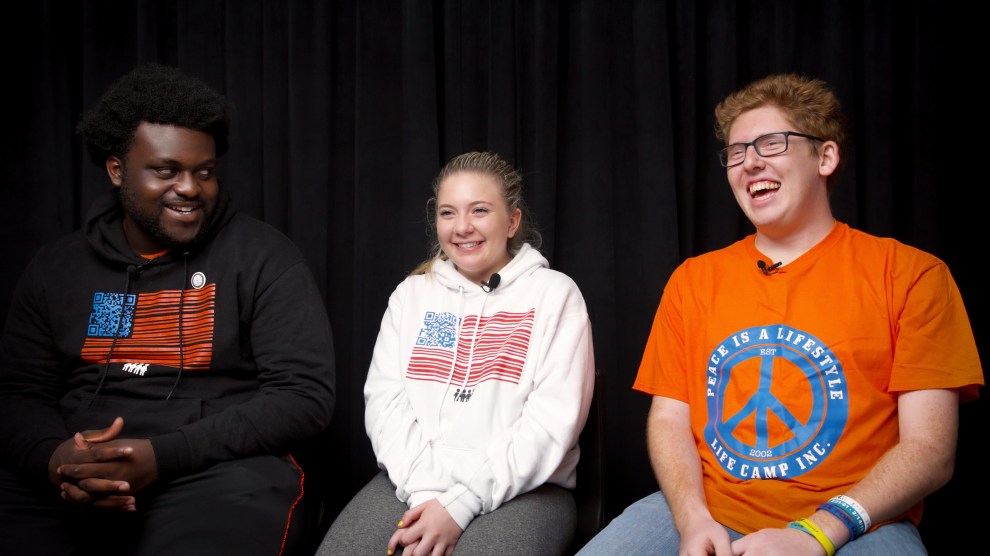
Mark Helenowski/Mother Jones
Mother Jones recently invited three top student leaders from the March for Our Lives movement into our studio to mark the six-month anniversary of the Parkland shooting, and to talk about what they learned during their national “Road to Change” tour, which made its final stop in Newtown, Connecticut, last Sunday.
The co-founder of the movement, Parkland survivor Jaclyn Corin, joined chief strategist Matt Deitsch and Chicago peace activist Alex King for a candid roundtable hosted by Mother Jones’ senior digital editor, James West—diving headlong into topics including recent legislative wins, the grueling hours of being on the road, and the burden of being called “saviors.”
“People like to romanticize the fact there are young people, and I truly don’t get it,” Corin admitted during the chat. “It doesn’t matter what our age is. Most of the things we say are facts, or stories, and those don’t have age limits. And so, I guess the romanticism is what needed to happen because people are finally listening, even though people of all ages have been fighting for this issue for decades upon decades.”
“I promise you this is all strategic,” Deitsch said about the group’s intense focus on registering and turning out young voters for the 2018 midterms. “If the young people turn out in these states, they get to pick the governor, they pick the congressmen, they pick the mayors, they pick the school board. They get to pick every single level of their government, simply by showing out.”
For the full discussion, watch the video above.
Watch more
You can also watch our passionate interview with Parkland student leader David Hogg about how the media ignores gun violence when it occurs in black communities, and how to build a truly diverse national movement. “The thing I learned most on this tour is how blatantly racist society is,” he said. “Mass shootings that primarily affect affluent white people get a lot more coverage than everyday shootings, especially [shootings] in black and brown communities. And that’s incredibly disturbing.”
Finally, in the video below, Mother Jones speaks to Nicole Hockley, who lost her son Dylan in the Sandy Hook attack, and Fred Guttenberg, whose daughter Jaime died in the Parkland shooting, about the ties that bind victims and survivors of highly publicized gun violence and about their own journeys of turning tragedy into advocacy.
Listen to more
The Mother Jones Podcast this week takes you to the final “Road for Change” rally in Newtown, Connecticut, where you’ll hear interviews with student leaders David Hogg and Bria Smith, as well as with the parents of victims in both the Parkland and Sandy Hook shootings.














